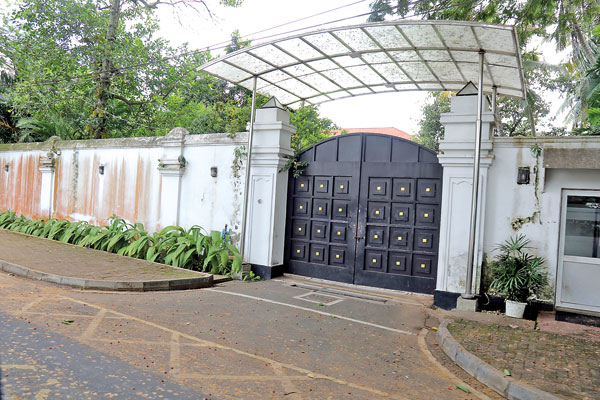Former ministerial residences left to decay
Most of the abandoned building that the current administration had repurposed for national interest ventures are closed and in disrepair. Many heritage buildings have become havens for criminals and drug addicts, while furniture and other assets have been stolen. Former lawmakers and scholars are calling for urgent action before the deterioration becomes irreversible.
Colombo (AsiaNews) – Most of Sri Lanka's former ministerial residences are unused and rapidly deteriorating. The current government had reclaimed about 50 government-owned buildings occupied by former presidents, ministers, and civil servants, stating that they would be used for national investment ventures; instead, most are closed and falling into disrepair with some used as havens for criminals and drug addicts.
According to former parliamentarians, most of the buildings are “heritage sites” and must be immediately restored and not be left unused. “After the current NPP (National People's Party) government came to power, these residences have not been assigned to anyone,” they said.
“Most of these houses are lying empty, while bats and nocturnal creatures are occupying some of the premises. Soon, these buildings will be beyond repair.” What is more, some “valuable furniture has been stolen, since there is no security personnel to protect them”.
Rapid action is called for before the houses fall into disrepair, security staff should be deployed, at least to prevent criminals from entering the premises.
Despite pressure, the government has yet to take any action. Deputy Minister of Provincial Councils and Local Government, Ruwan Senarath, stated only that "the government has yet to decide on the criteria for allocating the houses.”
“If the government is interested in using official residences for other purposes, they must amend the law. Otherwise, in the event of misuse of government property, ministry secretaries will end up in jail,” said Nilakshi Attanayaka and Suneth Mendis, two lawyers who spoke to AsiaNews.
While the government wants to use them for tourism or as museums, since most of them are heritage buildings, it is necessary to consult the Department of Archaeology before proceeding.
"Some of these buildings are centuries-old homes. If they are allowed to deteriorate and collapse as is currently evident, it will cost billions of rupees, which is taxpayers' money. Hence, it is necessary to take swift action without further delay."
For archaeologists Senarath Samarasinghe and Mahesha Rajapakse, “There is a legal system and a legal mechanism for the protection of Sri Lanka's archaeological heritage.”
The conservation of heritage buildings and related archaeological activities began in the 1980s based on ordinances. But the Antiquities Ordinance No. 09 of 1940, which has undergone several amendments, is one of the most significant pieces of legislation for the protection of antiquities.
Likewise, “the Antiquities (Amendment) Act No. 24 of 1998 strengthened the legal framework. Hence, those attempting to alter, restructure, and modify heritage buildings must follow guidelines issued by the Department of Archaeology, or legal action can be taken against those who violate the law," the archaeologists explained.
When the government asked former MPs to vacate their homes, they were handed over without hesitation. “However, since most of the buildings are currently collapsing, immediate action is needed to restore them to their former glory,” the two scholars emphasised.
31/10/2008
16/12/2017 12:55







.png)










